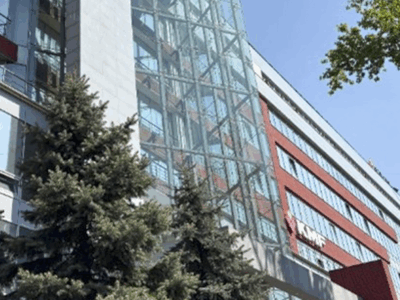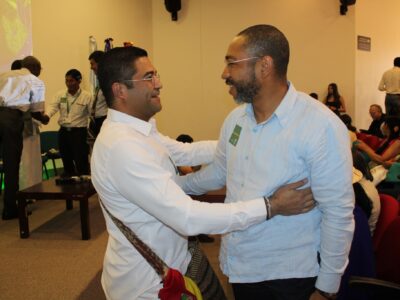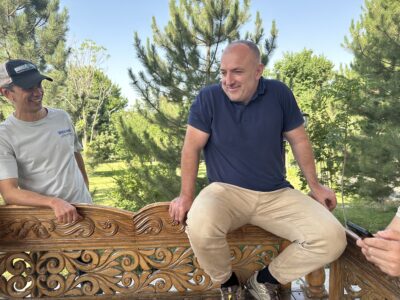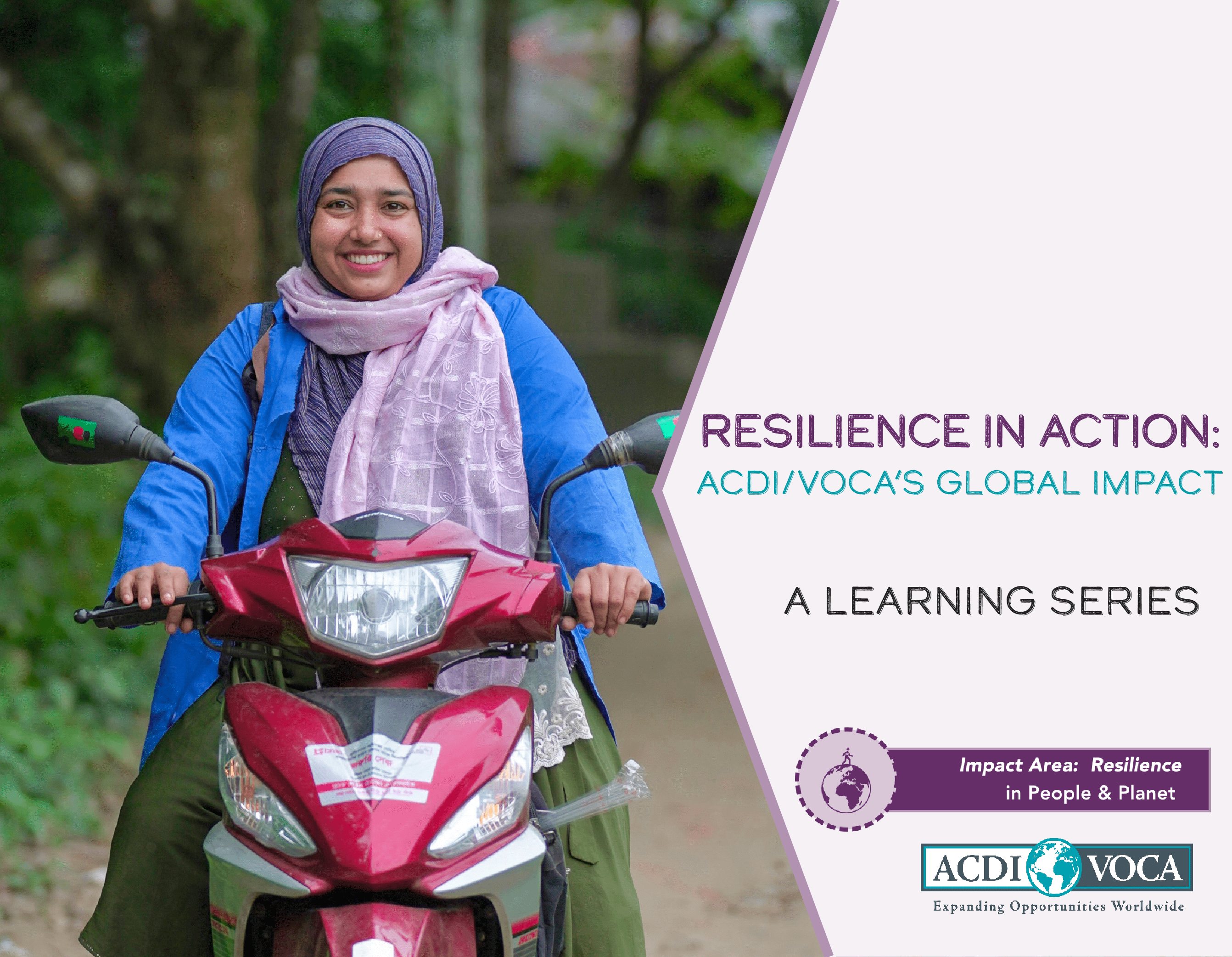
In this post we continue to provide examples of the many ways that ACDI/VOCA fosters resilience in projects around the world, creating sustainable change across different contexts and within systems by identifying and addressing social and resource challenges.
Today, we will explore:
- Building Market Access, Supporting Aspirations, and Empowering Women in Bangladesh
- Supporting Capacity and Income Diversity in Laos
Breaking Down Social Barriers to Growth through Investments in Women (and Motorcycles)
In Bangladesh, artificial insemination (AI) is key for small livestock entrepreneurs to expand their businesses. This practice allows them to breed cattle suited for the climate and resistant to diseases without the expense of raising or transporting a bull. AI providers bring services directly to their clients’ farms. This technology has been monumental in building the resilience of small livestock entrepreneurs by boosting their productivity while also helping them conserve resources.
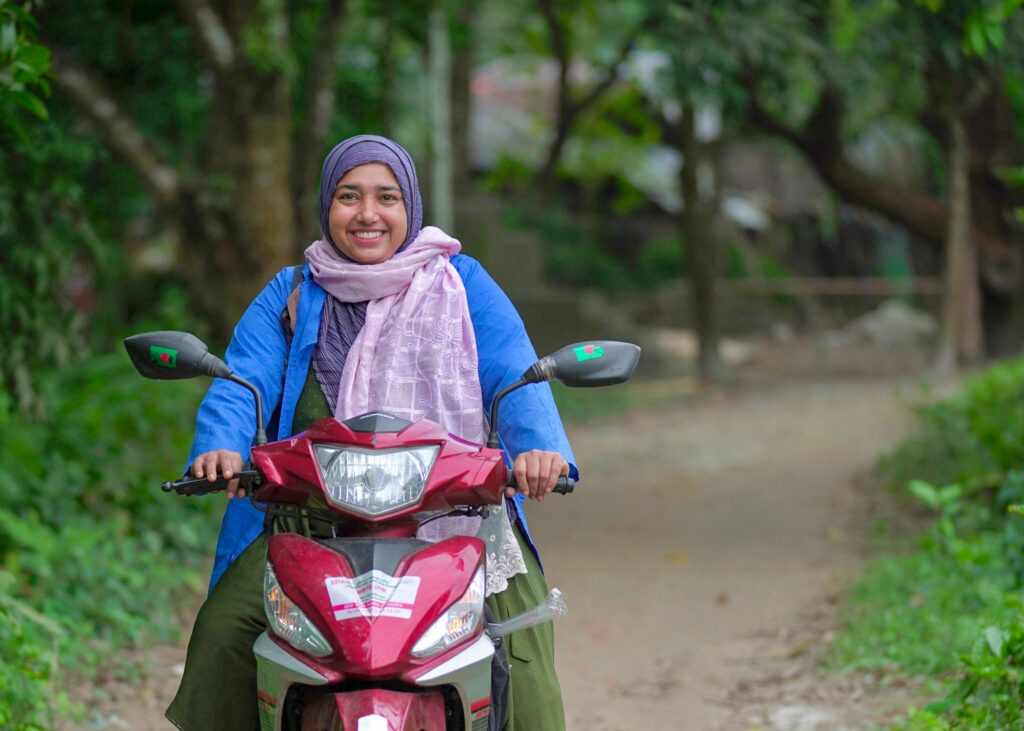
Women in Bangladesh perform 88 percent of all livestock farming in the country. Because of cultural norms, most feel more comfortable receiving AI services from female service providers. However, transportation is a big challenge for women in rural Bangladesh. They often have limited access to public transportation and face restrictions from their families on traveling alone, which has prevented many women from providing AI services.
To overcome this barrier, BRAC Artificial Insemination and ACDI/VOCA’s USAID-funded Feed the Future Bangladesh Livestock and Nutrition Activity (LAN) offered motorcycle training to women and helped them secure microloans to finance a vehicle. As a result, this untapped market is slowly experiencing a new supply of female service providers to serve and help support the resilience of small farmers.
Increasing Productivity and Supporting Income Stability with Eyeglasses
In Laos, particularly in the Lao Loum ethnicity, women weave handcrafted material on traditional looms to generate income. Providing consistent income each month, this livelihood is more reliable than seasonal crops and livestock, which are susceptible to shocks and stressors. Reduced yields, increased supply costs, and changing market demand create economic stress and threaten the security of many households dependent on farming. The market for weaving is not as volatile and helps provide stability for many families.
However, due to changes in their vision as they aged, many Lao women could no longer weave. Learning this, the Laos Microenterprise project, supported by USAID, pilot-tested the eyesight of 1,360 women ages 18-55 who weave for a living. Of those, 61 percent needed corrective glasses. Once their vision was corrected, the women’s productivity improved, and their incomes increased by 59 percent on average.
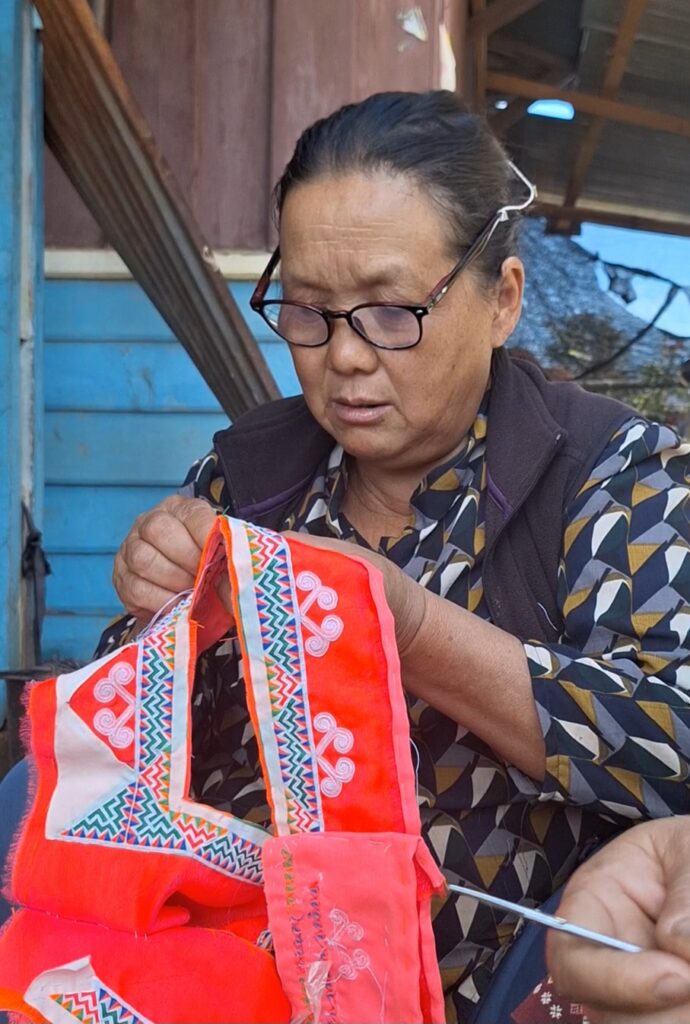
Based on the positive results of the pilot, the project implemented the program system-wide, providing eyeglasses to 2,713 individuals (97 percent of whom were women) and cumulatively increasing incomes by USD 720,000 annually.
Through the investment in testing and providing eyeglasses, the project created a lasting solution to help women weavers regain their economic importance in the household, supporting the resilience of their families and communities.
Read the first installment of this series, Resilience in Action: Empowering Livelihoods and Social Networks in Honduras and Burkina Faso, here.
Read the final installment of this series, Resilience in Action: Financial Inclusion and Market Strengthening in Kenya and Myanmar, here.

